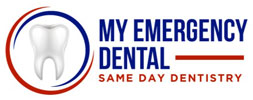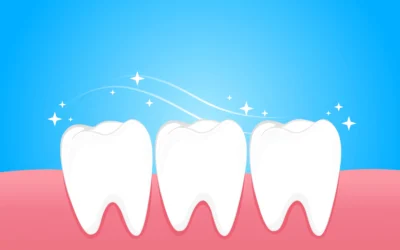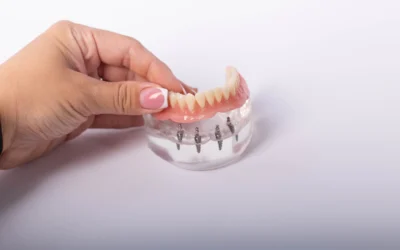We’ve all experienced dry mouth when we’re nervous or after eating too many saltine crackers. Dry mouth is challenging but a common condition nationwide where the mouth isn’t producing enough saliva for comfort and function. While short bouts of dry mouth are merely uncomfortable, a consistently dry mouth can be cause for concern. It can affect your oral health.
So, what is saliva for? What causes dry mouth, and what can you do about it?
Saliva’s Purpose
Saliva serves three different functions.
- Lubricates your mouth so you can speak: Free speech needs freedom of movement. If oral tissue sticks to itself, it can make talking difficult.
- Helps in digestion: Saliva is a slightly alkaline liquid with enzymes that help break down food and lubricate your throat so it slides easily down your esophagus.
- Protects your teeth: Because it is alkaline, saliva helps dilute and neutralize acids that can harm tooth enamel, washes starches and sugars away from teeth, and aids in remineralization.
Causes Of Dry Mouth And Their Antidotes
Mouthwash
Mouthwashes with alcohol in them will dry out your mouth. If you suffer from dry mouth, use a mouthwash formulated to increase mouth moisture, like Mouth Kote, Oasis Mouth Spray, or Biotene.
Dehydration
Many people are chronically dehydrated. If you aren’t drinking at least eight cups of water daily, increase your water intake. Take sips all day to keep your mouth moist and comfortable.
Tobacco
The nicotine in tobacco products causes your mouth to produce less saliva. There are several prescription and over-the-counter remedies for dependency on tobacco. You can hydrate with water, but kicking your tobacco habit has many benefits.
Caffeine
Tannins in coffee, tea, red wine, and some fruit can act like an astringent, drying your mouth and causing a puckering feeling. It slows saliva production as well. If dry mouth is a problem, consider cutting back on these substances.
Antihistamines
Allergy medicine stops the overproduction of mucus in response to allergens. Essentially, it dries things up, including your mouth. If you suffer from chronic or seasonal allergies, talk to your doctor about options that won’t cause dry mouth.
Mouth Breathing
People with deviated septums, severe allergies, or other breathing problems may breathe primarily through their mouth. However, the nose moistens air before it enters the lungs. If you breathe through your mouth, the air is too dry and steals moisture from your mouth.
Others breathe through an open mouth because they suffer from sleep apnea (they aren’t getting enough oxygen while asleep) or because they snore. Try placing a humidifier in your bedroom. However, make sure the room dries out during the day, as mold can grow on perpetually damp surfaces.
Medications
Many drugs cause dry mouth. Check the side effects of your medications to look for a likely culprit. Your doctor may be able to prescribe another medicine that could work better for you. Common causes are:
- Antidepressants
- Appetite Suppressants
- Antibiotics
- Migraine Medications
- Antipsychotics
- Overactive Bladder Medication
- Decongestants
- Bronchodilators
- Beta-blockers
- Diuretics
- Antihistamines
- Sedative Hypnotics
- Thyroid Replacement
- Muscle Relaxers
- Chemotherapy
- Anti-HIV Drugs
- Methamphetamines
Other conditions that may lead to dry mouth include endocrine disorders, neurologic disorders, eating disorders, drug abuse, chronic inflammatory autoimmune diseases, and more.
Sometimes, the medicine is your best option, even if it causes dry mouth and other side effects because dry mouth is better than the disease or condition you’re treating. If you’ve weighed your options and dry mouth is your new normal, here are some additional tips on how to keep your mouth comfortable and healthy.
- Try chewing sugar-free gum or sucking on sugar-free candies to increase saliva production. Some sugar-free sweeteners can cause adverse side effects, including headache and diarrhea if used in excess. Pay attention to your reactions. If you react negatively, try another sweetener or reduce the amount.
- Try saliva replacement products, including soothing gels and mouthwashes, to make you more comfortable.
- Seek complete dental care. As saliva helps protect teeth, it is even more important to see your dentist regularly to prevent tooth decay or to catch cavities and gum disease early. The sooner you notice the problem, the cheaper and easier it is to treat.
Signs To Watch For
Dry mouth makes you more prone to cavities and gum disease. If you notice any of the following symptoms, it is time to make a dentist appointment.
-
Bleeding gums
Occasional bleeding may mean you were slightly rough with the dental floss. However, if the bleeding continues or gets worse, see a dentist.
-
Pain
Minor pain may indicate food debris stuck between the gums and the teeth. If symptoms don’t improve or worsen with gentle but thorough brushing and flossing over the next few days, see your dentist.
- Swish warm salt water in your mouth to help with temporary pain and minor bleeding.
-
Broken or Chipped Teeth
If you break or chip a tooth, your cosmetic dentist can repair or replace the tooth.
-
Lost tooth
If you lose a tooth, put it in a small cup of milk and go to your dental urgent care. Your dentist may be able to save it.
-
Infection
If you show signs of infection, including redness, swelling, elevated temperature, nausea, vomiting, headache, etc., you need emergency dental care.
We all know the sandpapery feeling of a dry mouth. Luckily, there are small steps you can take to improve how your mouth feels and functions. If these steps are not enough to conquer your dry mouth symptoms, talk to your dentist about the problem. They can help you find ways to be more comfortable and avoid the dental health problems associated with a dry mouth.



